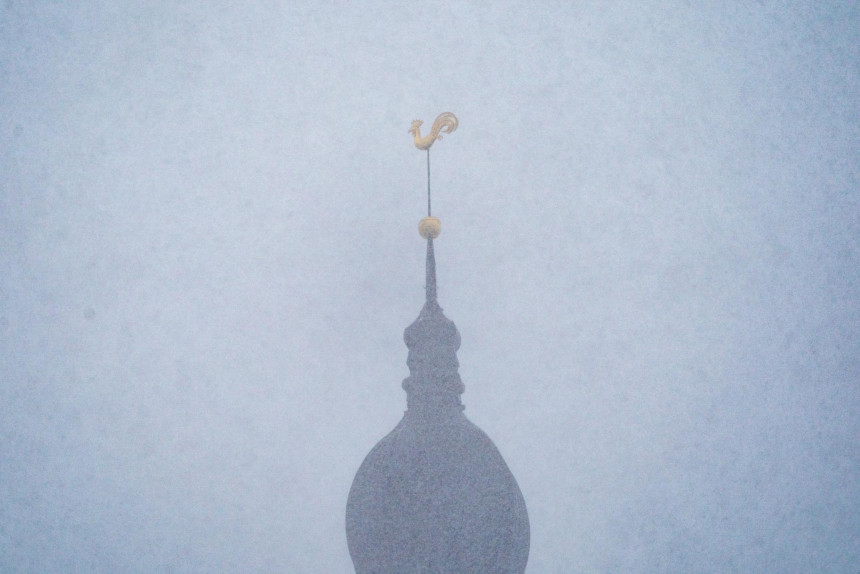Latvians trust the State Police and the National Armed Forces more than the church

In the 1990s, the church was one of the institutions with the highest public trust ratings in Latvia.
According to historical data from SKDS surveys, in 2000 the church's rating (the difference between those who trust and those who do not) was plus 58 percentage points. In the twenty-first century, only educational institutions (schools, universities, etc.) managed to gain higher public trust (from 2013 to 2016, the rating of educational institutions was above 60 percentage points). By contrast, the credibility of the church as an institution, while fluctuating periodically, has declined significantly over the past two decades, reaching a historic low of minus 22.3 percentage points at the end of 2019.
One of the reasons why the church lost its authority was the indulgence of the leaders of the major denominations to the state authorities, in return for tax breaks for church properties, funding for specific activities, etc. Here is how Professor Dace Balode, Dean of the Faculty of Theology at the University of Latvia, commented on this process in an interview with Neatkarīgā in 2017: "The relations between the major denominations and the state are settled with certain ministers, MPs or influential politicians. The relations are not formed democratically, but, if I may say so, they are at the level of quotas of deputies. Politicians, eager to atone for their sins, are, out of metaphysical fear, helping to implement what church leaders ask, whether in terms of property or in terms of financial support for certain measures. I think that is despicable. This is not the right way for religious organizations to form relationships with the state. If a church regularly engages in such dealings, then its leaders should be silent about the actions of those politicians, and they should refrain from judging the actions of political leaders and the policies they pursue. Cooperation is based on rational benefits, and this makes church policy-makers rather like members of the oldest profession."
When the global pandemic struck, as is normal when great dangers emerge, when there is no certainty about the future, there was a greater need to rely on a higher power. In the first year of the pandemic, trust in the church rose to 35.4 percentage points, but by December 2021, according to the most recent SKDS survey, trust in the church again approached the historic lows, reaching plus 24.2 percentage points (Study: "Trust in State and Public Institutions and Evaluation of the Performance of Politicians and Public Officials". Results of a survey of the Latvian population, SKDS, December 2021). Paradoxically, according to the December 2021 survey,
Latvians trust the State Police and the National Armed Forces more than the church.
In my opinion, the reason for the decline in trust in the church at the end of the second year of the pandemic is not only that there is not as much fear, concern and uncertainty about the spread of Covid as there was in the middle of 2020, but also that Latvia's major denominations obediently met all the demands of the authorities and remained silent about the nonsense and repression of those who think differently. Those who lost their jobs and many everyday comforts because of their convictions seem to many true believers to be more trustworthy than those churches which are only prepared to accept believers with Covid certificates. The leadership of the major denominations also remained silent about the repression and humiliation of thousands of believers initiated by the authorities. Because denominations whose leadership allowed deviations from the restrictions imposed by the authorities on the conduct of worship were immediately punished. On November 10 last year, Prosecutor General Juris Stukāns filed an application with the court to terminate the activities of the religious organization Jaunā paaudze (New Generation), and also asked for a temporary injunction - a ban on religious organizations "from holding any public events in person, including religious services, regardless of the location of the event."
In the public sphere, spiritual leaders of other denominations remained silent when a Latvian religious organization was dealt with. The courts stepped in to defend the faith from the arbitrariness of the authorities. In early December, the Riga City Pārdaugava Court rejected the Prosecutor General's Office's application for a temporary injunction against the Jaunā paaudze congregation until the court considers the merits of the Prosecutor General's Office's application.
The silence of the major denominations about the evil being perpetrated by the secular authorities undermines the credibility of church as an institution. It is worth reading again what the theologian Dace Balode said in 2017: "From time to time we need to be reminded that the church is to fulfil the function of the Old Testament prophets. The Old Testament prophets did not preach about the future, but expressed judgments and analyses of present processes. The Old Testament prophets were the voice of conscience, fulfilling an important task for the church: to defend spiritual values in everyday secular life."